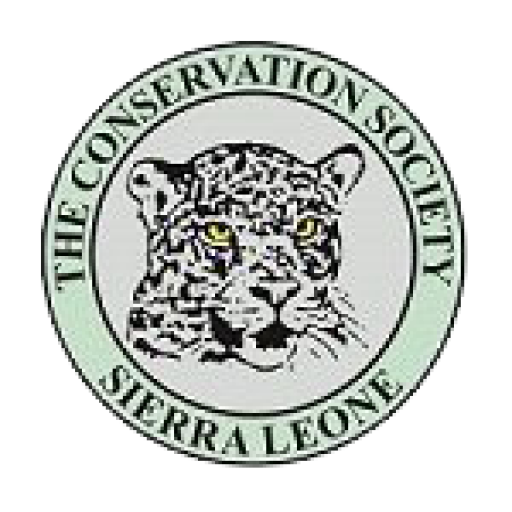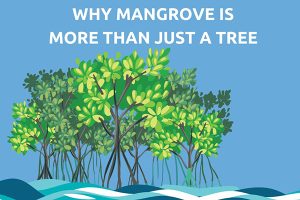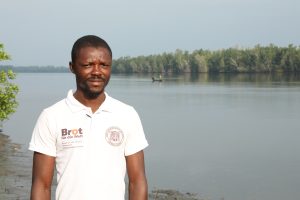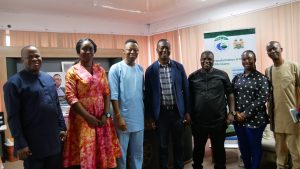Western Area Peninsula Forest National Park (WAPFNP) is one of Sierra Leone’s most important Protected Areas (PAs), because of its location to the capital city, as a water catchment area that supports the entire population in Freetown with potable water. The Park provides ecosystem services that benefit inhabitants in Freetown and communities in the peninsular.
Closing knowledge gaps to preserve the forest
However, inhabitants in most communities, especially Big Water, situated around the Park have embarked on land grabbing, neglecting the benefits provided by this ecosystem. Sometimes this happens because of knowledge gap on the environmental consequences resulting from their actions. Hence, organizing a massive sensitization program in this area to break this knowledge gap on environmental issues is a good move in maintaining peace among communities and the Freetown municipality generally.
With funds from Bread for the World (BftW) through the Civil Peace Service program in Sierra Leone, the Conservation Society of Sierra Leone (CSSL) organised a road show campaign on the 15th November, 2020 to increase knowledge among immediate communities around the WAPFNP about the relevance of protecting the Park and the associated consequences relative to community peace and development. The key messages delivered included preservation of water sources, sustainable use of ecosystem services, and maintaining peace among others.
Promoting peace through knowledge transfer
The roadshow was moderated by the CSSL/BftW Project Manager, Mr. Papanie Bai-Sesay. Having gone through all the opening courtesies, Mr. Sesay gave a brief background of the activity. The CSSL Communications Officer, Mr. Abdul K. Dumbuya briefly talked about CSSL. He said, the Society is a membership based organization that has its members across Sierra Leone and outside the country. He noted that, CSSL is the oldest environmental NGO in Sierra Leone, and has been working hard in the past thirty years with the Government, communities and partners to promote the wise use of the country’s environmental resources.
He emphasized that the Society works also with school nature clubs in various schools across the country, adding that, the involvement of school kids in its sensitization programs, is to use them as ambassadors for nature so that they grow up with such knowledge which they can use to remind their relations and peers on the dangers of deforestation.
Mr. Dumbuya furthered that, their primary focus for that roadshow was to support communities in promoting peace through knowledge transfer. “…if you have sustainable peace in your communities, you will surely have the drive to come together to ensure the protection of the National Park…”, he maintained. He also explained to participants about the differences between a national park and a community forest, citing examples of national parks like the Gola Rainforest National Park, Western Area Peninsula National Park, etc.
Mr. Papanie Bai-Sesay asked participants whether they knew any country that does not have a PA, and to name any district in Sierra Leone without a PA also. These areas are gazetted as PAs because they are areas of high conservation value; and mostly, such areas are not good for housing because once cleared, they become highly prone to many environmental disasters, Mr. Sesay asserted.
Ecosystem services and other key reasons to protect the forest
He explained to participants about ecosystem services benefits and other key reasons why communities need to protect the forest.
“Ecosystem services are the direct and indirect contributions of ecosystems to human well-being. They support directly or indirectly our survival and quality of life”
Papanie Bai-Sesay, Biodiversity Manager, CSSL.
Mr. Bai-Sesay further explained that, according to IUCN, a PA is a ‘clearly’ defined geographical space, recognized, dedicated and managed, through legal or other effective means, to achieve the long-term conservation of nature with associated ecosystem services and cultural values.
Commitment to spread the word
Before the activity ended, participants expressed marked appreciation to CSSL and the donors for what they described as insightful session. According to the Big Water Headman, Manso Sesay, he said the roadshow actually did highlight most of their bad practices in and around the National Park. On behalf of his community, he registered strong commitment towards ensuring that the messages reach the rest of his community members and surrounding communities.



